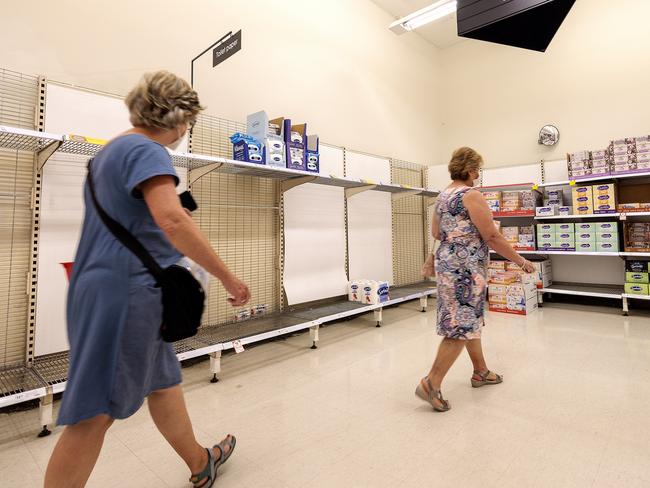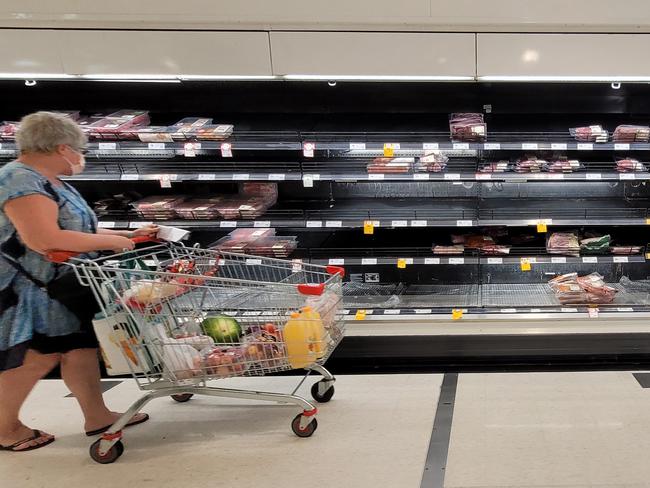Climate change driving up the price of meat, bread, dairy and fruit
The cost of everyday grocery items, including bread, milk and fruit, is rising due to climate change, and a new report warns things will only get worse.

Victoria
Don't miss out on the headlines from Victoria. Followed categories will be added to My News.
The price of meat, bread, dairy and fruit is being driven up by climate change’s impact on food supply chains — and the hip pocket pain is set to get worse.
A new report commissioned by Farmers for Climate Action has also raised fears of food shortages under severe global warming scenarios.
The Fork in the Roadreport, written by economics and governance expert Stephen Bartos, examines the impact of lost food, less water, and fewer days to transport livestock as some of the factors contributing to cost increase.

Mr Bartos, an expert in public sector governance and finance, says investment in resilience across the supply chain could help to safeguard against some of the looming problems, but that efforts to tackle climate change must increase.
“Australians take it for granted that food will always be available,” he said.
“The more risks there are, the more likely it is that there will be times when supply chain risk management plans will be overwhelmed and fail, and parts of Australia will run out of food.
“If climate change continues unabated this likelihood will become a certainty.”
The report says if targets on emissions reductions were met, problems within the Australian food supply chain “will be challenging” because current global warming is at 1.07°C above pre-industrial levels
Mr Bartos said a 2°C average warmer global climate would put the food supply chain
“under acute stress” and anything beyond that would have “catastrophic consequences for Australia”.

Farmers for Climate Action CEO Fiona Davis said impacts of extreme heat ranged from water shortages to problems with food packing facilities, transport links and the cost of insurance, finance and fertiliser.
“As Australia heats further, these impacts will grow and consumers will pay more for food,” Ms Davis said.
Ms Davis said this also meant increasing risk of food shortages in Australia “when multiple events coincide”.

“We saw this earlier this year in Northern and Central Australia early this year when record floods cut off roads and rail links during the Covid pandemic,” she said.
“Right now our thoughts are with people impacted by the Queensland and northern New South Wales floods as they grapple with the flood response, while also trying to secure essential food supplies.
“We need to act quickly to make our supply chains more robust, but ultimately to address the key driver of these difficulties, we need deep emissions cuts this decade to protect our farmers and our food supply chain.”





